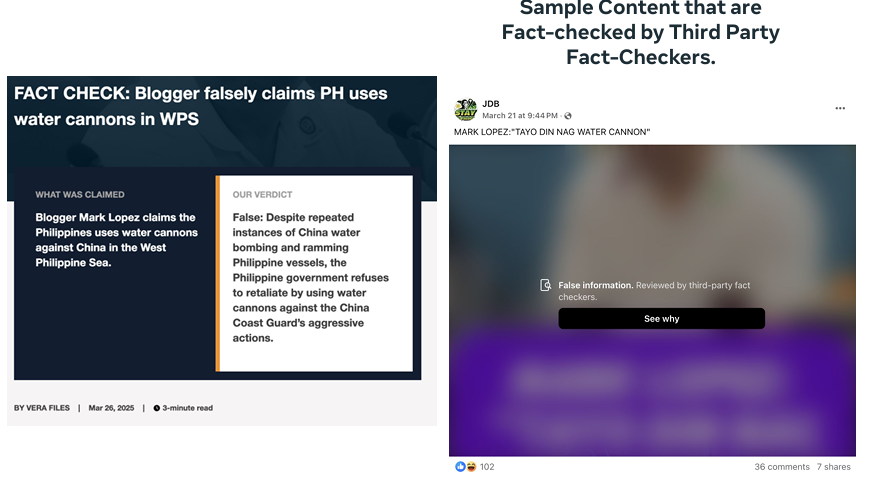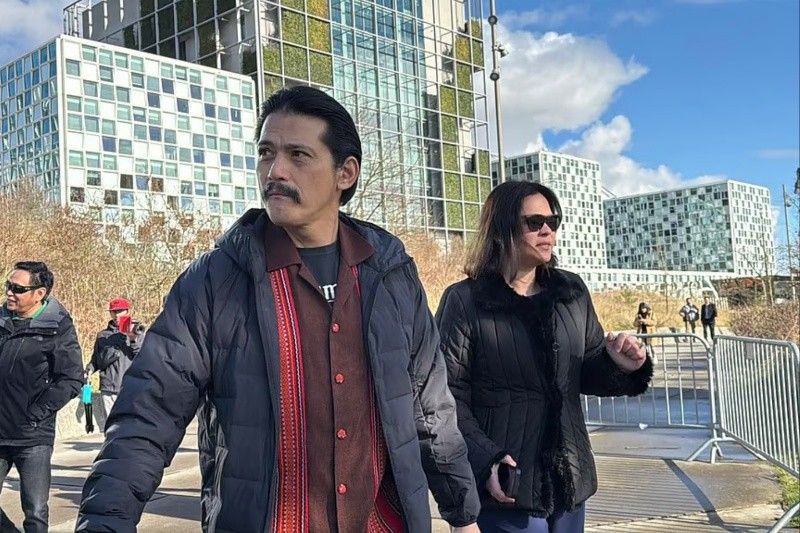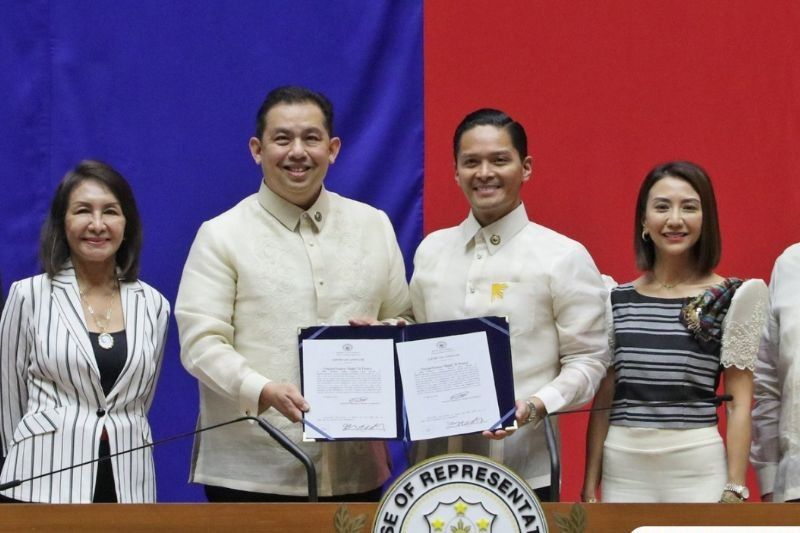
Upgrade to High-Speed Internet for only ₱1499/month!
Enjoy up to 100 Mbps fiber broadband, perfect for browsing, streaming, and gaming.
Visit Suniway.ph to learn
MANILA, Philippines — While it had already moved to discontinue the program, Meta boasted its third-party fact-checking initiative as a critical defense against disinformation in the Philippines.
During its fourth hearing on Tuesday, April 8, the House Tri-Committee finally questioned representatives of social media giant Meta on what steps the company is taking to rein in the spread of falsehoods across its platforms like Facebook.
Rafael Frankel, Meta’s director of public policy in Southeast Asia, presented the company’s three-pronged approach to combating misinformation, stressing its partnership with fact-checking organizations in the country as a key component.
According to Frankel, the approach involves three main strategies:
- Removing content and accounts that violate our community standards, including harmful misinformation
- Reducing distribution of low-quality content, including fact-checked content
- Informing people by giving them more context so they can decide what to read, trust and share
“Meta works with fact-checking organizations in more than 60 languages globally to identify, review and rate viral misinformation on our platforms,” he said.
Meta has collaborated with independent third-party fact-checkers certified by the International Fact-Checking Network (IFCN) to “address viral misinformation” that has the potential to mislead or cause harm.
In the Philippines, the IFCN-certified organizations include VERA Files, PressOne, Agence France-Presse, Rappler, MindaNews and ABS-CBN.
“When it comes to misinformation, what we can do is we can, ourselves, send content for the fact-checkers to check or the fact-checkers can do it themselves,” Frankel said.
In response to the lawmakers' questions, he repeatedly emphasized Meta’s reliance on fact-checking partners. He also praised the proactiveness and quality of fact-checks conducted by Philippine media organizations.
“What we see in the Philippines is that they are very robust. I think we have some of the most robust fact-checkers in the world active in the Philippines and very active in terms of the many political and types of content we’re seeing on our platforms today in the Philippines,” he said.
How Meta deals with misinformation
So the process begins with Meta personnel reaching out to its fact-checking partners for content verification, or picking up their fact checks.
Based on the rating — whether false, partially false, misleading, or other evaluation — Meta reduces the content’s visibility to users and attaches a label reflecting the rating, along with accurate information from the fact-checking organization.
Frankel’s presentation included an example of a Facebook post published on March 21 by user JDB, which falsely claimed the Philippines used water cannons against China in the West Philippine Sea.
Vera Files fact-checked the post, leading to it being blurred and labeled as “false information.” Users can then view the fact-check behind the label through the “See why” feature.

Sample content shows how the flagged Facebook post will look like after being fact-checked by Meta's third-party fact-checkers.
Meta Director of Public Policy in Southeast Asia Rafael Frankel
However, the post remains live. It is not removed, and social media users can still react to, comment on or share it.
“It is really third parties that are the ones that are most capable and most appropriate to determine the veracity of information. There is a parallel system that we have in place, which is the third-party fact-checking system,” Frankel said.
Meta’s public policy director explained that false content would only be “outright removed” when they receive an “additional signal,” typically from law enforcement agencies, indicating that the information could incite violence.
It was only during Rep. Rodge Gutierrez’s (1-Rider Party-List) line of questioning that Meta’s January decision to phase out its fact-checking program and replace it with community notes was raised.
Not a global policy. Frankel clarified that the decision was implemented only in the United States, where the head of Meta believed the fact-checking program had become “politicized.”
While he stated, “as of now, there’s no plan to change that globally,” it’s worth noting that Meta previously mentioned plans to roll out the new approach worldwide.
“Our intention is ultimately to roll out this new approach to our users all over the world, but we won't be doing that immediately,” Meta said in March. “Until Community Notes are launched in other countries, the third-party fact-checking program will remain in place for them.”
When content is removed
Frankel explained that cases where content is removed involve “transnational crimes,” such as human trafficking and scam operations. Other cases include child exploitation, harassment and terrorism, which are typically reviewed against community guidelines.
He added that Meta has been working closely with Philippine law enforcement on these issues, particularly in the context of Southeast Asia.
“If you’re talking about where we might see a few hundred accounts or a few thousand accounts engaged in coordinated abuse of our platforms then you’re looking at the potential to remove all in one swoop thousands or hundreds of thousands of individual content,” he said.
However, in terms of Meta’s efforts to stop the spread of misinformation, Frankel said that “the outright removal of misinformation [is] much more limited in scope.”
In an interpellation with Rep. Paolo Ortega (La Union, 1st District), Frankel admitted that Meta does prioritize “real world, offline and physical harm” over regulating false content on social media platforms.
“In the basic sense, yes... It will jump to the top of the queue,” he said.
However, Frankel also mentioned that repeated instances of users or pages spreading misinformation could result in reduced content distribution from those accounts, as well as other actions such as demonetization and restrictions on online advertisements.
Fact-checking phaseout ‘a step backward’
Since Meta CEO Mark Zuckerberg announced the end of fact-checking on its platforms in January, media organizations have raised alarms about the major blow to online accuracy in countries already grappling with widespread disinformation.
In an open letter, the IFCN stated that Meta’s fact-checking program, launched in 2016, “was a strong step forward in encouraging factual accuracy online.”
The Philippines has been inundated with disinformation, which has, on several occasions, been identified as part of coordinated efforts to twist narratives and sway public opinion for a specific agenda.
Over the past months, media organizations have fact-checked a rise in online disinformation, fueled by the 2025 midterm election campaign and the issues surrounding former President Rodrigo Duterte’s arrest and Vice President Sara Duterte’s impeachment.
The letter also denounced Meta’s announcement suggesting that fact-checkers were “responsible for censorship,” arguing that such claims only exacerbate the malicious perceptions journalists already face.
IFCN partners stressed they do not even have the authority to remove content from Meta’s platforms.
“Most importantly, we believe the decision to end Meta’s third-party fact-checking program is a step backward for those who want an internet that prioritizes accurate and trustworthy information,” the letter read.
The House Tri-Comm is working to develop legal measures that would hold social media platforms accountable for allowing the persistent spread of disinformation online and regulate such content. It is also considering establishing an ethics board for content creators to address ways of curbing false narratives.

 2 months ago
20
2 months ago
20



